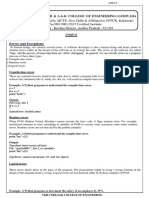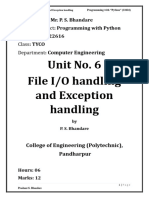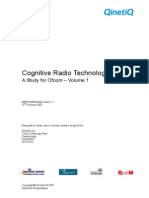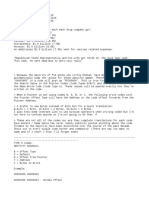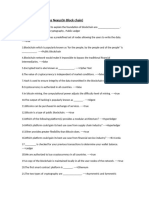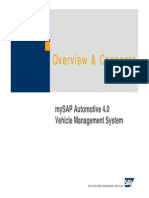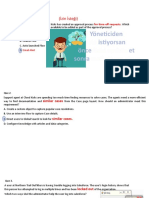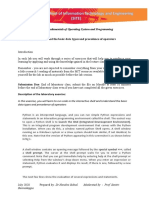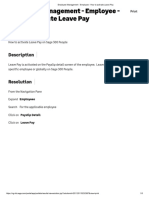0% found this document useful (0 votes)
11 views7 pages12 - Exceptions
The document outlines the recording disclaimer for COMP 125 - Programming with Python, emphasizing that course materials are for personal educational use only and any unauthorized distribution is prohibited. It discusses exceptions in programming, explaining that they indicate errors during execution and can cause programs to halt unless handled properly. Exception handling is introduced through the try-except statement, which allows programmers to anticipate and manage exceptions effectively.
Uploaded by
mehmetfatihozdemir75Copyright
© © All Rights Reserved
We take content rights seriously. If you suspect this is your content, claim it here.
Available Formats
Download as PDF, TXT or read online on Scribd
0% found this document useful (0 votes)
11 views7 pages12 - Exceptions
The document outlines the recording disclaimer for COMP 125 - Programming with Python, emphasizing that course materials are for personal educational use only and any unauthorized distribution is prohibited. It discusses exceptions in programming, explaining that they indicate errors during execution and can cause programs to halt unless handled properly. Exception handling is introduced through the try-except statement, which allows programmers to anticipate and manage exceptions effectively.
Uploaded by
mehmetfatihozdemir75Copyright
© © All Rights Reserved
We take content rights seriously. If you suspect this is your content, claim it here.
Available Formats
Download as PDF, TXT or read online on Scribd
/ 7










